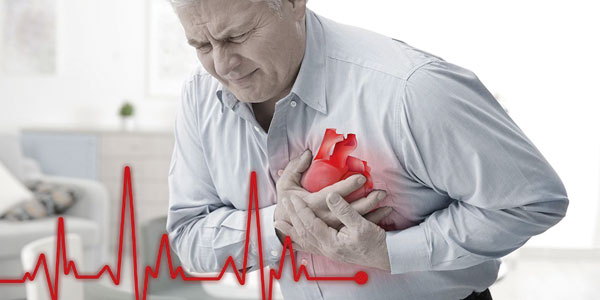
Commentary by Yanis De Palma
Heart disease kills more Americans each year than any other disease. That is why it is important to educate yourself on how to keep your heart healthy.
An important way to educate yourself is by learning the difference between the facts and the myths regarding heart disease. Some of the most commonly held, but mistaken beliefs about cardiovascular disease include the following:
*Chest pain is the only symptom of a heart attack: Some of the subtler symptoms include shortness of breath; nausea; feeling lightheaded; and pain or discomfort in one or both arms, the jaw, neck and/or back.
*Heart disease only affects old men: No matter how old you are, your lifestyle or genetics can put you at risk of suffering from heart disease. Even young people can develop heart problems, especially if they are overweight. In a related matter, your lifestyle as a young person affects your health later in life. Starting in childhood and adolescence, plaque can start accumulating and cause clogged arteries.
*People with heart disease should not exercise: Research shows that heart attack survivors who are regularly active and adopt a healthy lifestyle live longer. If you have heart disease, get moving with an exercise plan approved for you by your healthcare provider.
*You can lower your risk of heart disease by eating as little fat as possible: Yes, a diet that is low in saturated fat is good for your heart’s health. So is a diet with no trans fat. However, unsaturated fats in vegetable oils and other natural foods are good for your heart. That is why experts recommend including fatty fish, low-fat dairy products, nuts and olive oil in your diet.
*Feeling great is a sign that heart disease has disappeared: Some forms of heart disease are asymptomatic. High blood pressure, for example, is known as a silent killer because you can suffer from it without knowing it. So even if you feel great, get regular medical checkups. Doing so can save your life.
Mitos sobre la enfermedad cardiovascular
La enfermedad cardíaca mata a más estadounidenses cada año que cualquier otra enfermedad. Por eso es importante educarse sobre cómo mantener su corazón sano.
Una forma importante de educarse es aprender la diferencia entre los hechos y los mitos sobre las enfermedades del corazón. Algunas de las creencias más comunes, pero erróneas, sobre las enfermedades cardiovasculares incluyen las siguientes:
* El dolor en el pecho es el único síntoma de un ataque cardíaco: Algunos de los síntomas más sutiles incluyen dificultad para respirar, náusea, sentirse mareado y dolor o malestar en uno o ambos brazos, mandíbula, cuello y/o espalda.
* La enfermedad cardíaca sólo afecta a las personas mayores: No importa la edad que tenga, su estilo de vida o su genética pueden ponerlo en riesgo de padecer una enfermedad cardíaca. Incluso los jóvenes pueden desarrollar problemas cardíacos, especialmente si tienen sobrepeso. Además, su estilo de vida como joven afecta su salud más adelante en la vida. A partir de la infancia y la adolescencia, la placa puede comenzar a acumularse y causar obstrucciones en las arterias.
* Las personas con enfermedades cardíacas no deben hacer ejercicio: Las investigaciones muestra que los sobrevivientes de ataques cardíacos que son regularmente activos y adoptan un estilo de vida saludable viven más tiempo. Si tiene una enfermedad cardíaca, comience a moverse con un plan de ejercicios aprobado por su proveedor de atención médica.
* Puede reducir su riesgo de enfermedad cardíaca comiendo la menor cantidad de grasa posible: Sí, una dieta baja en grasas saturadas es buena para la salud de su corazón. Lo es una dieta sin grasas trans. Sin embargo, las grasas insaturadas en los aceites vegetales y otros alimentos naturales son buenos para el corazón. Es por eso que los expertos recomiendan incluir pescado graso, productos lácteos bajos en grasa, nueces y aceite de oliva en su dieta.
* Sentirse bien es un signo de que la enfermedad cardíaca no existe: Algunas formas de enfermedad cardíaca son asintomáticas. La presión arterial alta, por ejemplo, se conoce como un asesino silencioso porque puede sufrirla sin saberlo. Así que incluso si se siente bien, hágase chequeos médicos regulares. Hacerlo puede salvar su vida.









